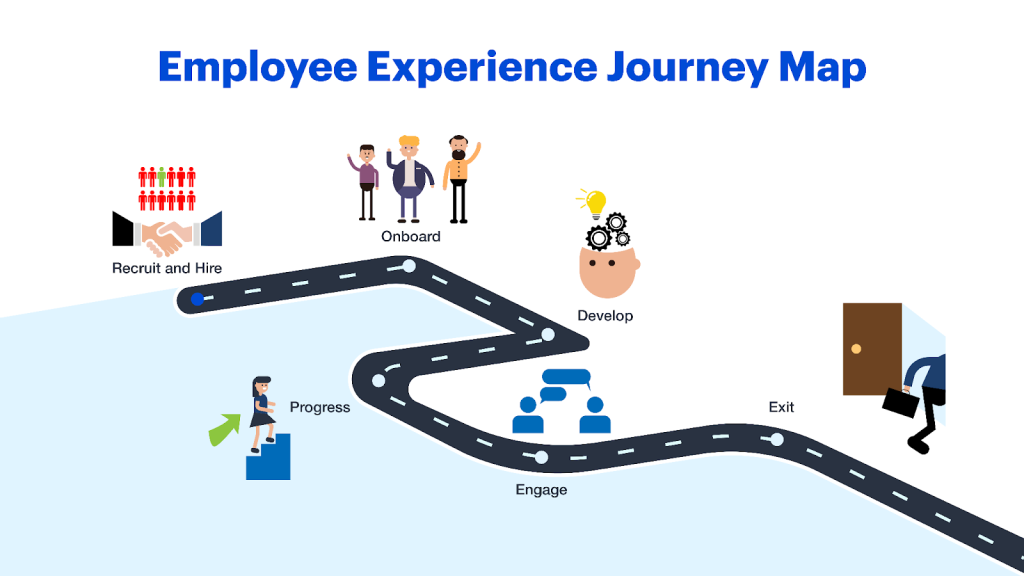The Lifecycle of Loyalty: A Deep Dive into the Employee Experience Journey
In the modern workplace, employee loyalty is a critical factor in the success of any organization. A loyal workforce not only contributes to higher productivity but also helps in reducing turnover rates and recruitment costs. To understand the dynamics of employee loyalty, it is essential to explore the intricate journey that employees go through during their tenure with an organization. This journey can be broken down into several stages, each playing a unique role in shaping an employee’s loyalty.
Recruitment and Onboarding: The employee loyalty journey begins even before an individual joins the organization. The recruitment and onboarding process sets the tone for the employee experience. A well-structured and transparent recruitment process that accurately communicates the company’s values, culture, and expectations can lead to a strong sense of alignment from day one.
Initial Impressions: During the first few weeks on the job, employees form their initial impressions of the company. The way they are welcomed, the quality of their onboarding, and the support they receive during this period significantly impact their loyalty. It is crucial to provide the necessary resources, training, and mentorship to help new hires acclimate to their roles.

Day-to-Day Work Experience: As employee journey settle into their roles, their day-to-day work experiences become central to their loyalty. A positive work environment, clear communication, and opportunities for skill development all contribute to a sense of engagement and satisfaction. Regular feedback, recognition, and a healthy work-life balance are key components of this stage.
Career Growth and Development: Employees who see a path for career growth and development within an organization are more likely to remain loyal. Offering training, mentoring programs, and clear career progression opportunities not only help employees enhance their skills but also demonstrate the company’s commitment to their long-term success.
Challenges and Resilience: No workplace is without challenges, and how these are managed can significantly impact loyalty. A supportive environment that encourages employees to voice concerns, provides resources to overcome obstacles, and promotes resilience can turn challenges into opportunities for growth. Loyalty often deepens when employees feel their contributions are valued even in difficult times.
Recognition and Rewards: Recognition and rewards play a vital role in employee loyalty. Beyond financial compensation, non-monetary recognition, such as praise, promotions, and opportunities to lead or contribute to meaningful projects, can foster a strong sense of loyalty. Recognizing and celebrating employee achievements reinforces their commitment to the organization.
Leadership and Management: The relationship between employees and their immediate supervisors has a profound impact on loyalty. Strong leadership that is empathetic, communicates effectively, and supports the growth of their team members can build trust and loyalty. Conversely, poor management practices can erode loyalty and lead to disengagement.
Organizational Culture: Organizational culture is the underlying fabric that binds the employee experience journey together. A culture that promotes openness, inclusivity, and values aligned with employees’ personal beliefs fosters loyalty. Employees who resonate with the company’s culture are more likely to stay committed over the long term.